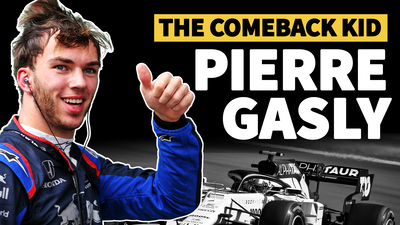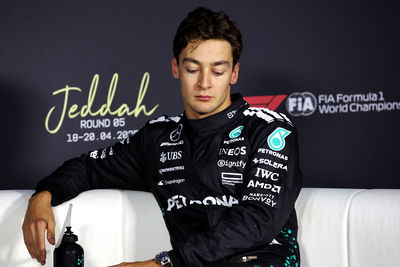F1 has “big questions” to answer over its future - Vettel
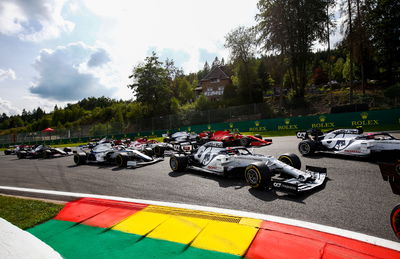
Sebastian Vettel believes Formula 1 has some “big questions” to address in order to create a sustainable future and needs to be leading the way in “setting examples”.
F1 will introduce a reduced budget cap for next season as part of major changes to not only make the sport more competitive and improve the on-track spectacle, but also to dramatically save costs.
As part of its longer-term aims, F1 unveiled plans last November to become carbon neutral by 2030 and to make its events fully sustainable by 2025.
Vettel highlighted his concerns about the future of the sport ahead of this weekend’s Italian Grand Prix at Monza.
“Just looking at where the world is, being critical and from outside you could ask where Formula 1 is and what place Formula 1 is filling,” Vettel said.
“Therefore, I think you need to be serious about that and I think the sport has some big challenges ahead.
“Obviously the whole situation with the pandemic around the world doesn’t help but nevertheless I think there’s some big questions to be answered for the future to make sure that this sport is still around in years to come.
“With the way the world is going I think there are big things that we need to tackle, we need to address, and Formula 1 is maybe not at the forefront of this.
“It is obviously a sport, it is entertainment, but still I think what I wanted to say is we can do better than what we are currently doing.
“Looking after the world, the environment, I think there’s some interesting aspects that we are trying to fulfill and achieve but I think Formula 1 has to do more and be a bit more and tolerant.
“Otherwise I think - and that’s just my personal opinion - it could get difficult in the future.”
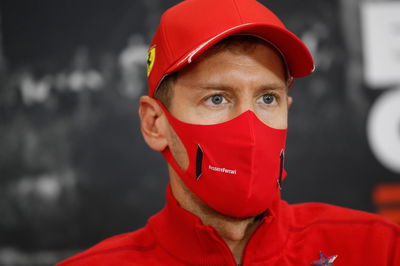
Asked if he could be more specific about his worries, Vettel replied: “Formula 1 is held around the globe every year and I think as a global sport we should act responsibly.
“I think Formula 1 should be setting examples rather than reacting to pressure from the outside.
“When it comes to the environment we are driving around the weekend in cars, we’re burning fuel, which is probably a very small amount of the total energy or total carbon footprint if you want to talk in CO2 terms.
“But still I think we need to start acting more and more, setting the right example. And not just on our carbon footprint but also on other things.
“I do think every little bit makes a difference - the amount of plastic bottles we have, we consume during the weekend, I think there’s solutions to that. How we power maybe some panels and the paddock I think there’s solutions to that.
“We should be at the forefront and pushing developments rather than using what is convenient and cheap in order to make things work and easy.
“So F1 is obviously the pinnacle of motorsports when it comes to the development of the cars but I think it doesn’t just stop there.
“Also when you talk about the cars I think there’s more that can be done in order to have a greater relevance for the future, to now find our technology on the road in a few years’ time down the road.”
Six-times world champion Lewis Hamilton, who has repeatedly voiced his environmental concerns, admitted he doesn’t have “all the answers laid out” but stressed that F1 must do better to minimise waste.
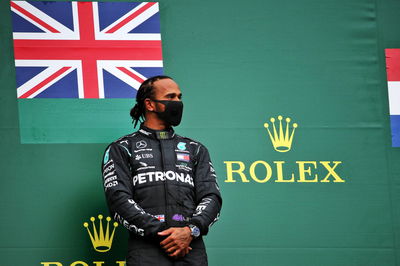
“Particularly pre-COVID, there was a huge amount of waste that would come away from a weekend, from the food, the hospitality services,” Hamilton explained.
“I can’t even imagine how many thousands of plastic bottles are left in those places each weekend.
“I think Formula 1 should definitely be working - I’m sure they are - when you do these events in these different countries you work with the organisers to make sure that you operate as cleanly as possible. We should minimise waste.”
And Hamilton reckons F1 will eventually be pushed down the route of going fully electric at some stage in the future.
“In terms of the sport, we have already come from a V10, to a V8, to a V6, and ultimately I think this sport is going to have to continue moving in the direction of going electric at some stages - as does the whole car industry,” he said.
“So, we’ve got to continue to innovate in that direction. It’s probably not going to happen in my time here but the future of Formula 1.”
